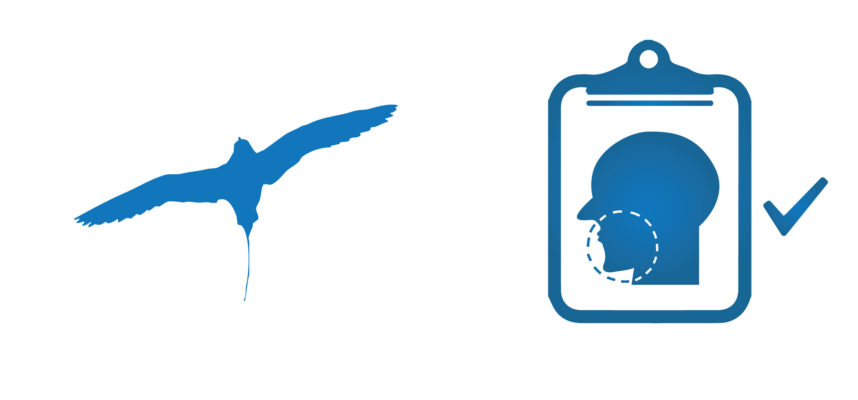Post-operative care is important following surgery. Our major jaw surgery is always performed in the morning in Epworth Hospital, Waurn Ponds. Patients usually go home after an overnight stay. Reviews are normally weekly for the first 4 weeks and then a final review 2 weeks after that. From there, we schedule post-op follow-up appointments in our office at 6 and 12 months.
Elastics
When you wake up from the jaw surgery, you will feel your teeth closed tightly together. This will normally be accomplished with tight orthodontic elastics. This is to help your jaws heal more quickly. It also keeps your teeth together during the initial swelling to aid in comfort. The elastics will be loosened gradually over the 6-week recovery and any pins inserted for the elastics removed at the 6-week visit.
Bleeding and Bruising
Oozing or redness in the saliva is normal after surgery in the mouth. Occasionally large clots may be dislodged, and you may have some oozing from the nose. This is all normal. If the bleeding is bright red and excessive, it is important that you contact us immediately. Bruising is very common after lower jaw surgery and not so common after upper jaw surgery. It can be quite dramatic and extend all the way down your neck and onto your chest.
Swelling
There will also be a dressing around your head and jaw area that has a cooling pad inserted within the head wrap. There is an ice chest connected to this cooling pad that must be plugged in at all times and must have fresh ice maintained so that the cooling pad is working properly. It is important to make sure the cooling pad is working properly so that swelling can be kept to a minimum. The head wrap and dressing will typically be removed the day after surgery; however, in some cases, the dressing will be left in place for 2 days. Swelling can be minimized by keeping the cooling pad in place for 1–2 days after surgery. Swelling usually peaks on or about day 3 or 4. The swelling can be fairly dramatic after some jaw surgeries. We recommend that you keep your head elevated (on 2–3 pillows or in a recliner) for up to a week or so after surgery. Swelling may take several weeks to resolve completely.
Pain Management/Medications
If you are treated in the hospital, you will typically be on a pain pump that will allow you to manage the pain at your own pace. If you are discharged to go home, you will need to take pain medicine by mouth, which typically comes in the form of a liquid.
You will also have an antibiotic to take for about one week.
It is important not to blow your nose for approximately 2 weeks if you have had upper jaw or nasal surgery. Judicious use of the saline nasal spray is recommended. We will typically prescribe a decongestant nasal spray as well.
We may ask that you take a steroid dose pack after surgery.
Please remember that adequate hydration is a very important factor in minimizing nausea for the first several days of recovery. Pain medicine can also make some patients nauseated, so it is best taken with something in your stomach to minimize this risk. It can also cause itching, but typically this will not be in the form of an allergy but as a side effect of the medication. If you experience itching without the development of a rash, then you may want to decrease the dose of pain medicine and consider taking some Benadryl.
Diet
We ask that you maintain a no-chew diet for approximately 6 weeks.
We will provide you with a copy of “Dinner Through a Straw,” which will provide you with nutritional recipe ideas for after surgery.
It is possible that you may lose several pounds after surgery (10–15 pounds); however, eating frequently, taking in plenty of protein supplements and increasing calorie intake can minimize weight loss and improve your ability to recover quicker.
Care of Your Mouth
It is important to keep your mouth as clean as possible after surgery. In the first week, this can be extremely difficult. It is important to get a soft, child’s toothbrush and begin brushing the outside of your teeth as soon as feasibly possible. It is important to start doing warm saltwater rinses as often as possible after surgery. We recommend doing this at least 3 times per day as soon as you can. This should consist of 1 teaspoon of salt in 8 ounces of warm water. You may have rubber bands on your braces after surgery, and we will instruct you regarding these. In rare cases, your teeth may be wired together after surgery. If this is the case, you will need to always carry your wire cutters with you in case of an emergency.
Employment/School/Exercise
You may need to take at least 2–3 weeks off work/school for your surgery. Most patients feel fairly good after about 2 weeks of recovery, but because of the dietary changes, it may be as long as 6 weeks before you have most of your energy back. Strenuous exercise should be avoided until you have all of your strength back. Certain contact sports that could result in trauma to the face, such as football, basketball, etc., should be avoided for 3 months.
Post-Operative Conditions
Swelling and/or tenderness in one leg should be reported. One risk of surgery is blood clots that can develop in the leg.
Follow-Up Appointments: Please attend all of these appointments because they are very important to your recovery.
